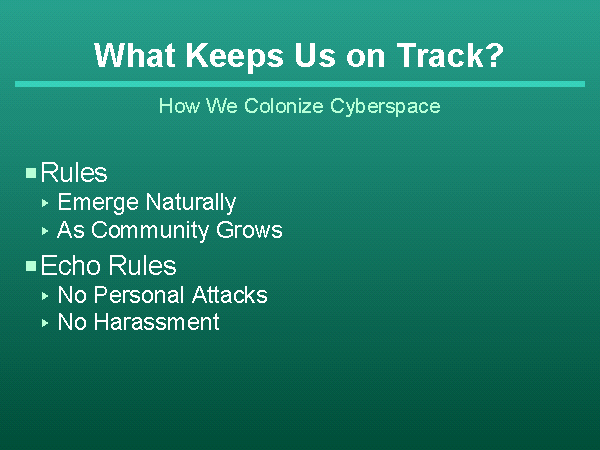





 Notes:
Notes:
Rheingold notes that the term "Cyberspace" was coined by William Gibson in a science-fiction novel entitled "Neuromancer." Now it is often used to refer to the conceptual spaces where words, human relationships, data, wealth, and power are manifested by people using CMC technology.
Rheingold observes, "Whenever CMC technology becomes available to people anywhere, they inevitably build virtual communities with it, just as microorganisms inevitably create colonies."
Webster's New Collegiate Dictionary (1975) defines colony as "a body of people living in a new territory but retaining ties to the parent state ..." The pertinent definitions of state are "a politically organized body of people, usually occupying a definite territory" or "the political organization of such a body of people." And the relevant definition of politcal is "of or relating to government, a government, or the conduct of government."
In short, whether they simply transfer them from their physical communities or develop their own variations, the inhabitants of cyberspaces rely upon rules -- spoken and unspoken -- to sustain a sense of community.
Interestingly, Echo's rules are essentially the same as those applied in the U.S. Congress. Horn's first rule on Echo is: "The management of Echo believes in freedom of expression. However, personal attacks are not acceptable behavior on Echo. Remember: Attack the idea, not the person. Repeated attacks may lead to being placed on read-only status, or, in the extreme case, the closure of your account." (p. 56)















